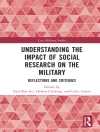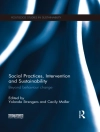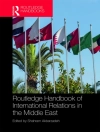With the enlargement of the European Union, the accession countries are coming under pressure to develop and meet EU standards for environmental protection and sustainable development. In this ongoing process, global economic liberalization, regulatory policy, conservation, and lifestyle issues are all involved, and creative solutions will have to be found. Historians, geographers, economists, ecologists, business management experts, public policy specialists, and community organizers have come together in this volume and examine, for the first time, environmental issues ranging from national and regional policy and macroeconomics to local studies in community regeneration. The evidence suggests that, far from being mere passive recipients of instruction and assistance from outside, the people of Central and East Central Europe have been engaged actively in working out solutions to these problems. Several promising cases illustrate opportunities to overcome crisis situations and offer examples of good practices, while others pose warnings. The experiences of these countries in wrestling with issues of sustainability continue to be of importance to policy development within the EU and may serve also as examples for both developed and developing countries worldwide.
Зміст
List of Figures and Tables
Acknowledgements
Notes on Contributors
Introduction: Legacies, Challenges, and New Beginnings
Zbigniew Bochniarz and Gary B. Cohen
Chapter 1. From Communism to Climate Change: The Sustainability Challenge and Lessons from Central Europe
Robert Wilkinson
Part I: The Environment as Policy Priority
Chapter 2. Assessing Sustainability of the Transition in Central European Countries: A Comparative Analysis
Sandra O. Archibald and Zbigniew Bochniarz
Chapter 3. Sustainability and EU Accession: Capacity Development and Environmental Reform in Central and Eastern Europe
Stacy D. Van Deveer and Jo Ann Carmin
Chapter 4. Sustainability of Clusters and Regions at Austria’s Accession Edge
Edward M. Bergman
Part II: The Economics of Sustainable Development
Chapter 5. Greenhouse Gases Emissions Trading in the Czech Republic
Jirina Jilková and Tomás Chmelík
Chapter 6. Ecological Reform in the Tax System in Poland
Olga Kiuila and Jerzy S´leszynski
Part III: Water Policies and Institutions
Chapter 7. The Czech Republic: From Environmental Crisis to Sustainability
Václav Mezricky
Chapter 8. The Tisza/Tisa Transboundary Environmental Disaster: An Opportunity for Institutional Learning
Eszter Gulácsy, László Pintér, and Jim Perry
Chapter 9. Austria and the EU Water Framework Directive
Wilhelm R. Vogel
Chapter 10. The Western Bug River: UNECE Pilot Project
James B. Dalton, Jr.
Chapter 11. Wastewater Treatment in the Postcommunist Danube River Basin
Igor Bodík
Part IV: Agriculture and Rural Development
Chapter 12. “Thinking Unlike a Mountain”: Environment, Agriculture, and Sustainability in the Carpathians
Anthony J. Amato
Chapter 13. New Approaches to Sustainable Community Development in Rural Slovakia
Slavomíra Macáková
Chapter 14. Sustainable Development in Moravia: An Interpretation of the Role of the Small-Town Sector in Transitional Socioeconomic Evolution
Antonín Vaishar and Bryn Greer-Wootten
Chapter 15. Building Local Sustainability in Hungary: Cross-Generational Education and Community Participation in the Dörögd Basin
Judit Vásárhelyi
Select Bibliography
Index
Про автора
Gary B. Cohen, has been director of the Center for Austrian Studies and professor of history at the University of Minnesota, Twin Cities, since 2001. He teaches and publishes on modern Central European social and political history. He is the author of numerous articles and essays as well as two books, The Politics of Ethnic Survival: Germans in Prague, 1861-1914 (first edition, Princeton Univ. Press, 1981; rev. 2nd ed., Purdue Univ. Press, 2005) and Education and Middle-Class Society in Imperial Austria, 1848-1918 (Purdue Univ. Press, 1996).












